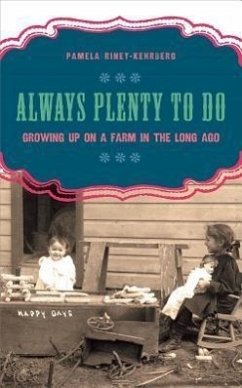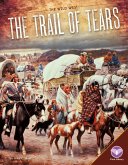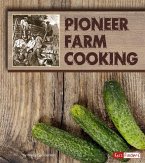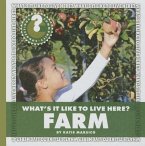The story of childhood on America's farms in the late nineteenth and early twentieth century, Always Plenty to Do is a journey back to America's breadbasket. Fleshing out the contours of everyday life, it reveals what farm children saw, heard, smelled, tasted, and felt--and how they worked, played, and learned. Drawing upon rich primary sources from the Great Plains and Midwest, Riney-Kehrberg combines biography and historical narrative to invite young readers into the nation's rural past. Always Plenty to Do provides a strong, basic background in America's farm heritage through the eyes of children who experienced it. Readers will taste the biscuits and lard that mothers packed in lunch pails, and feel the weight of the buckets of water that children carried from the well. In addition to physical and technological differences (what life was like before the Internet, or even cars and electricity), Always Plenty to Do addresses emotional differences, such as the substantial responsibility children bore for the farm's success and their family's well-being.
Hinweis: Dieser Artikel kann nur an eine deutsche Lieferadresse ausgeliefert werden.
Hinweis: Dieser Artikel kann nur an eine deutsche Lieferadresse ausgeliefert werden.








